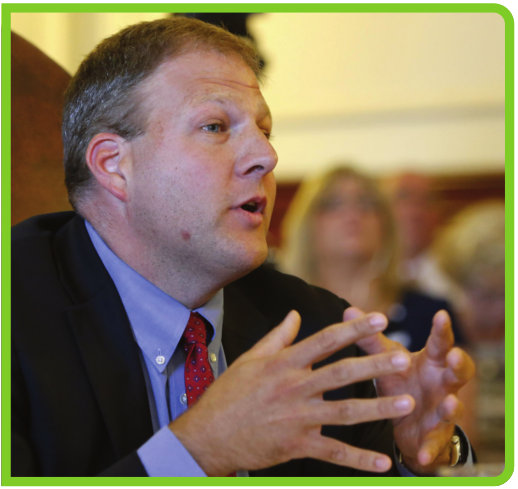 Gov. Chris Sununu is taking executive action to discourage the state from making investments based on environmental, social and governance factors.
Gov. Chris Sununu is taking executive action to discourage the state from making investments based on environmental, social and governance factors.
“Prioritizing the highest returns on investment for our public employees is our number one responsibility,” Sununu said in a statement accompanying his executive order.
So-called ESG investing has become a target for Republicans in statehouses across the country in recent months. Sununu’s order comes just weeks after he joined 18 other Republican governors in announcing their intent to leverage state pension funds to ensure corporations are, “focused on maximizing shareholder value, rather than the proliferation of woke ideology.”
Sununu’s order directs executive branch agencies, which in New Hampshire do not typically handle investments, and the state treasury to not place state funds in investment accounts solely based on ESG criteria.
The order also encourages the state retirement system, which manages almost $12 billion, to adhere to its fiduciary duty to obtain the highest return. A spokesman for the retirement system says it’s already meeting that standard.
Major investment firms have been considering ESG factors for some time, responding to calls from clients who want to make socially responsible investments and who consider investing in the fossil fuel industry, for instance, to be risky over the long term.
Republicans have criticized it as “woke” investing. The Trump administration tried to stop pension managers from using ESG criteria, passing a rule to ban major retirement funds from investing in this way.
But that was reversed after President Biden took office, through an administrative rule for pension managers that allowed them to make investment decisions taking into consideration environmental, social and corporate governance factors.
Congress passed legislation earlier this year that would have reversed the Biden Administration’s move. Biden vetoed that bill in March.
“Retirement plan fiduciaries should be able to consider any factor that maximizes financial returns for retirees across the country.
That’s not controversial — that’s common sense,” Biden said in his veto message.
Congress failed to override that veto, and so the rule will now stand.
The New Hampshire Senate, meanwhile, is slated to vote on a bill that aims to limit the potential for ESG investing.
The legislation would mandate quarterly reports by the state treasurer and the retirement system demonstrating compliance with “the duty to make all investment decisions solely in the interest of the participants and beneficiaries of the state retirement system.”
The bill would also require state officials to “note the existence of any investment funds that may have mixed, rather than sole, interest investment motivations.”
— JOSH ROGERS/NH PUBLIC RADIO